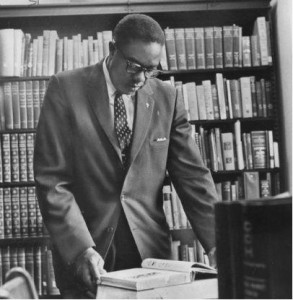It’s Canada History Week, and this year’s theme is the History of Black Achievement in Canada. The week encourages everyone to reflect upon and engage with Canada’s past.
We’ve been following Craig Baird – Canadian History Ehx (@CraigBaird) on X, and we love his fun and interesting take on Canada’s rich history. He has generously allowed 705BLACKFLY.COM to republish some of his work. Please follow him on social media and visit his website www.canadaehx.com. You can support his work by donating at https://buymeacoffee.com/craigU.

Enjoy these stories of extraordinary Black Canadians who helped shape our country.
WILLIAM HALL
William Hall is the first Black recipient of the Victoria Cross! He was born on April 28, 1827 in Nova Scotia to Jacob and Lucy Hall. Both of his parents had escaped enslavement in the United States.
As a young man, Hall first served on merchant ships in Nova Scotia before briefly joining the United States Navy from 1847 to 1849. In 1852, he volunteered for the Royal Navy, serving on HMS Rodney. He served at the Battles of Inkerman and Sevastopol in the Crimean War. He then served on HMS Victory and HMS Shannon.
In May 1857, when the Indian Rebellion of 1857 broke out, he went with HMS Shannon to India. It was at the Siege of Lucknow on Nov. 18, 1857 that Hall earned his Victoria Cross. One of the gun crews was short a man and Hall volunteered. The guns had little effect on the walls, and the gun crews suffered heavy casualties. Hall, along with Lt. Thomas Young, continued to fight and loaded and served the last gun between them. They fired at the wall from less than 18 metres, helping to breach it.
Hall became not only the first Black person to earn the Victoria Cross, but also the first person from Nova Scotia and the third Canadian overall. He remained with the Royal Navy for the rest of his career until he retired in 1876. He returned to Nova Scotia.
In 1901, the future King George V visited Nova Scotia and recognized Hall’s medals in a parade. He took time to stop and talk with him.
Hall died in 1904. He has been honoured with a stamp from Canada Post and was designated a National Historic Person. A road and RCN ship were also named for him.

BARBARA HOWARD
This is the story of Barbara Howard, the first Black woman to represent Canada in international athletic competition!
Barbara Howard was born on May 8, 1920 in Vancouver. By the time she reached high school, she was one of the fastest sprinters in Vancouver.
In September 1937, she did a time trial and achieved 100 yards in 11.2 seconds, beating the British Empire Games’ record. When she was 17, she was put on the Canadian women’s track and field team for the 1938 British Empire Games. At the Games, she took silver and bronze. She hoped to compete at the Olympics but the Second World War cancelled the 1940 and 1944 Olympics.
Howard became a teacher and in 1941 became the first member of a visible minority to be hired by the Vancouver School Board. She spent the next 43 years teaching at area schools. After retiring from teaching in 1984, Howard remained an active volunteer in Vancouver. She often led exercise classes and peer counselling courses.
In 2012, she was inducted into the BC Sports Hall of Fame. Three years later, she was inducted into the Canadian Sports Hall of Fame.
Howard died on Jan. 26, 2017. One year later, a park in Vancouver was named for her.

LINCOLN ALEXANDER
This is the story of Lincoln Alexander, a trailblazer at multiple levels of government! Lincoln Alexander was born on Jan. 21, 1922 in Toronto. In school, he dealt with racism from other students, & often defended himself in fights.
He later joined the RCAF as a wireless operator during WW2. While stationed in Vancouver, he was refused service at a bar because of his race. He reported it to a superior officer who did nothing.
After the war, he attended McMaster University but even with his degree & the support of the mayor of Hamilton, no one would hire him. Lincoln then got a law degree but only one firm offered him a job. He remained with the firm for several years before moving on to politics.
In 1968, he was elected to Parliament, becoming Canada’s 1st Black Canadian MP. He served with the PCs. In his Parliamentary career from 1968-1980, he also became the first Black Canadian cabinet minister when he was the Minister of Labour from 1979 to 1980.
In 1985, he was appointed as the Lt. Governor of Ontario, becoming the 1st Black Canadian to hold a vice-regal post. As Lt. Governor, serving until 1991, he visited 672 communities, held 675 receptions, received 75,000 guests, attended 4,000 engagements & visited 230 schools. He then served as chancellor of the University of Guelph from 1991-2007 for a record five terms.
When he died on Oct. 19, 2012, he was given a state funeral, which was attended by 1,500 people.
The Province of Ontario declared Jan. 21 to be Lincoln Alexander Day in Ontario. In 2018, a stamp was issued in his honour. To date, five schools are named for him.

LEONARD BRAITHWAITE
Leonard Braithwaite was born on Oct. 23, 1923, in Toronto. During the Second World War, he served in the Royal Canadian Air Force.
After the war, he earned a Master of Business Administration degree from Harvard in 1952. Six years later, he earned a law degree from Osgoode Hall Law School. In 1960, he was elected to the Etobicoke Board of Education. Three years later, he was elected to the Ontario Legislature.
As the first Black Canadian to be elected to the Ontario Legislature, he was instrumental in ending segregated schools in the province. His first speech in the Legislature on Feb. 4, 1964, called for an end to a section of the Ontario Separate Schools Act that allowed for racial segregation in public schools. In 1966, he called for the admission of female legislative pages. He served in the Legislature until 1975. In 1982, he was elected as a city controller on the Etobicoke City Council. He spent the remainder of his life practicing law.
In 1997, he was awarded the Order of Canada. In 2004, he was awarded the Order of Ontario. Braithwaite died on March 28, 2012. That same year, a park in Etobicoke was renamed in his honour.





